Be born at the right time, go to the right place, find the right problem, work with the right people and get the right committee – Prof Sydney Brenner shares his secret to winning a Nobel Prize with TAN SHIOW CHIN.
NOBEL Prize winner Prof Brenner says he knows too much and therefore tries to forget things – this is in the conviction that the state of ignorance will lead to discoveries.
Therefore, his advice to young researchers is for them to “exploit your ignorance”. At the same time, he cautioned that “too much ignorance is not good”.
In his opinion, established scientists have too much knowledge and this prevents them from conducting basic experiments that might lead to new discoveries.
Said Prof Brenner in a light vein: “I know too much now, but I’m trying to forget things. I think I shall soon reach that wonderful state of ignorance that is conducive to discoveries.”
He was addressing young scientists and researchers at a talk organised by the Academy of Sciences Malaysia (ASM) at Universiti Kebangsaan Malaysia (UKM) recently in support of the government’s goal of producing a Malaysian Nobel Prize winner by 2020.
The roomful of students and lecturers listened attentatively to the Nobel Prize winner for Physiology or Medicine 2002 who also authored the book How to Win a Nobel Prize.
Prof Brenner said the same question “how to win a Nobel Prize” was asked by a Chinese student via e-mail about a month before the Nobel Prize banquet in December 2002.
Inspired by the question, he decided that his banquet speech would be about how to win a Nobel Prize.
He recalled: “The speech went something like this: First, you have to be born at the right time. Then, you have to go to the right place, for example, Cambridge.
“Then, you have to find the right problem, for example, DNA (deoxyribonucleic acid). Then you have to find the right people to work with.
“Then you have to get the right Nobel Prize committee, with a chairman discerning enough to appreciate your work.”
Worms and mRNA
Born in Germiston, South Africa, in 1927, Prof Brenner developed a love of science early in his life.
“I’ve wanted to do science since I was three years old. I’ve always been interested in nature,” said Prof Brenner whose visit to Malaysia was sponsored by the British Council.
Entering medical school at the age of 15, he soon discovered that his passion lay in research, particularly in the area of cells and their functions.
This passion led him from South Africa to Oxford and Cambridge in the United Kingdom to Berkeley and La Jolla, California, in the United States.
It was in Cambridge that he and his colleagues, Prof H. Robert Horvitz and Sir John E. Sulston, conducted the research that led to their winning the Nobel Prize in 2002.
The Nobel committee awarded them the prize for “their discoveries concerning the genetic regulation of organ development and programmed cell death”.
Their research revolved around mapping out and analysing the genome of the roundworm Caenorhabditis elegans.
In particular, they identified the key genes involved in regulating organ development and programmed cell death, and showed that corresponding genes exist in higher species, including man.
These discoveries have led to a new understanding of the cause and progress of many diseases including cancer, stroke and neurodegenerative diseases.
While it was his work with C. elegans that won him the Nobel Prize, it is another discovery of his that constitutes an essential component of college biology textbooks the world over.
In the early 1960s, Prof Brenner established the existence of messenger ribonucleic acid (mRNA), which carries the information contained in DNA sequences to ribosomes outside the cell nucleus that use the information to synthesise proteins in the cell.
He also demonstrated that it is the nucleotide sequence of the mRNA that determines the order of amino acids in proteins.
Along with Prof Francis Crick, one of the discoverers of the structure of DNA, Prof Brenner proposed that a single amino acid is coded for by a triplet (three nucleotides) of RNA.
Advice to young scientists
He also told his audience: “You don’t need complicated machines to do science. A lot of science can be done directly.”
According to him, the best scientists are craftsman who know how to formulate and conduct experiments.
“We live in an era of complete information overload,” he said, referring to modern technology that enables scientists to analyse objects atom by atom.
Just a list of what constitutes an object is of no use, he commented.
He advised students to “try to read the classics that teach you how to solve problems, not those that just give you a list of what there is”.
In closing, he said: “The most important thing about science is that it’s the one job that pays you to have fun.
“My children were always very resentful that they had to go to school and sit at a desk to study while daddy got to go to the lab and play.
“The other important thing is that science is a craft you have to cultivate.
“And remember, as scientists, we owe a responsibility to all living things and all humanity.”
In an earlier engagement, Prof Brenner also spoke on Humanity’s Genes at ASM’s 10th anniversary celebrations at the Institute for Medical Research (IMR).
The Nobel laureate is currently a Distinguished Research Professor with The Salk Institute for Biological Studies in La Jolla, California, and the co-chair of Singapore’s International Advisory Council for biomedical sciences.
He is actively involved in research on the genome of the Japanese puffer fish Fugu rubrips.
 Wow, I haven't been writing for quite sometime - both here and my blog. I don't know what keeps me busy, or rather 'occupied' - but I'm sure I found myself pretty too much things to be thought about I end up with nothing to be written once I reach for the keyboard.
Wow, I haven't been writing for quite sometime - both here and my blog. I don't know what keeps me busy, or rather 'occupied' - but I'm sure I found myself pretty too much things to be thought about I end up with nothing to be written once I reach for the keyboard.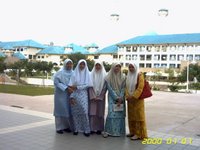
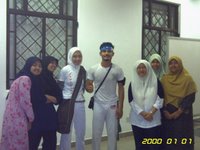

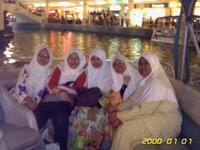
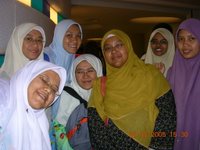
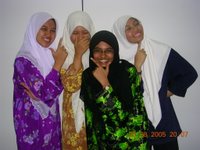



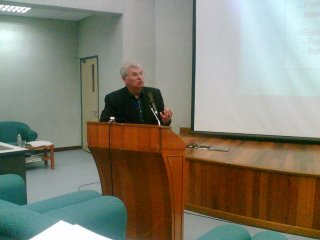
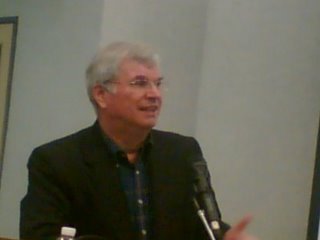
 I was going through my archive files, and I found few sketches I did and the resulting colored files one year back. Wow, I thought; I forgot already how I did these.
I was going through my archive files, and I found few sketches I did and the resulting colored files one year back. Wow, I thought; I forgot already how I did these.



















